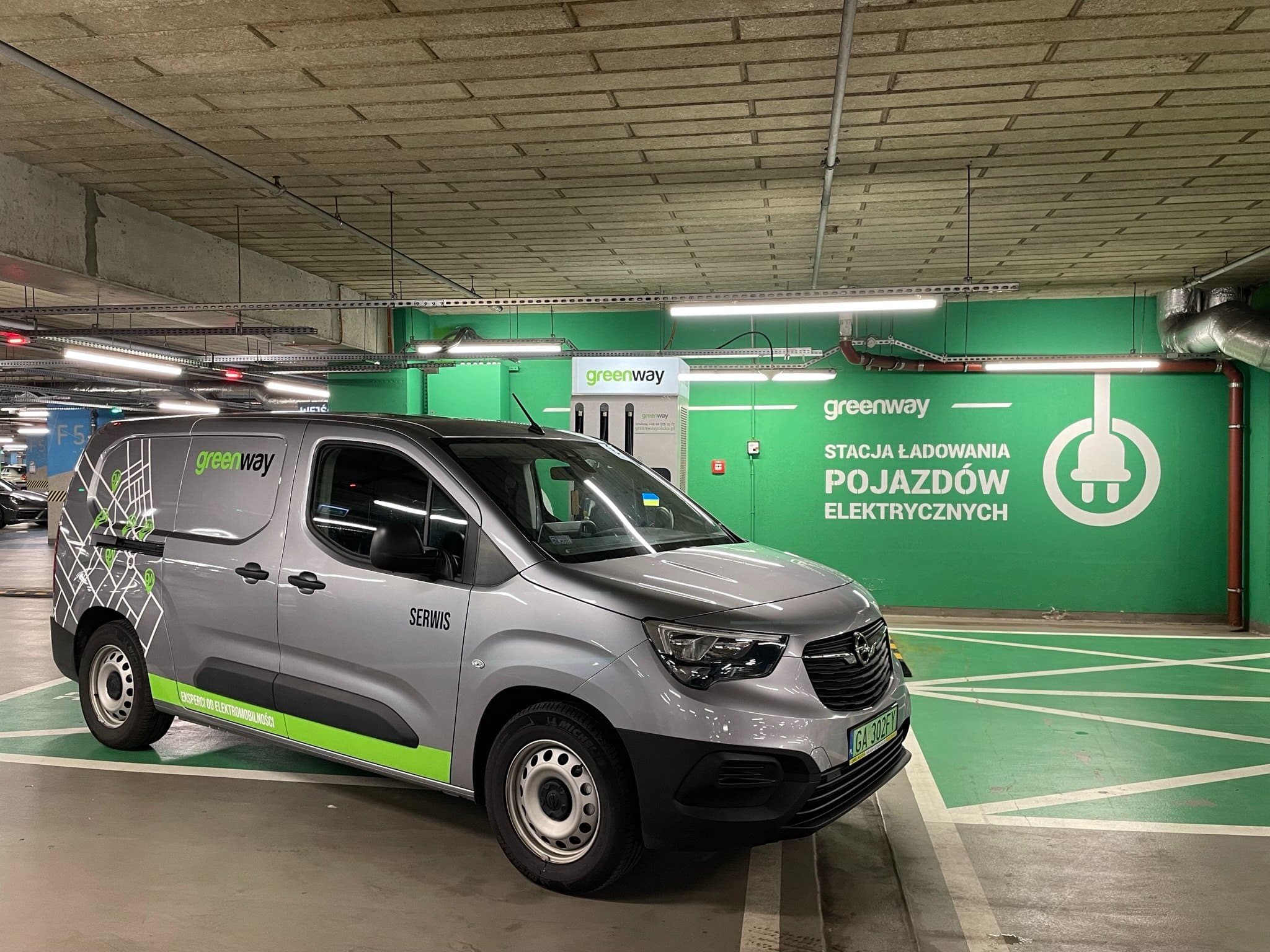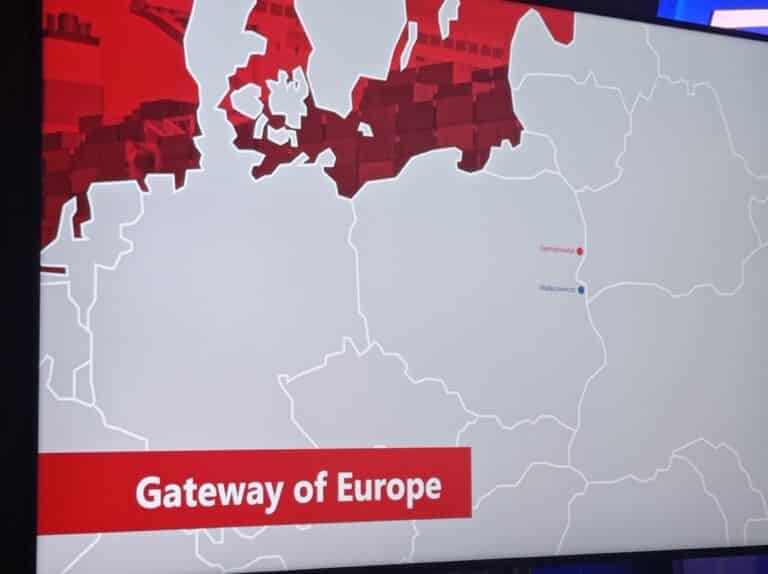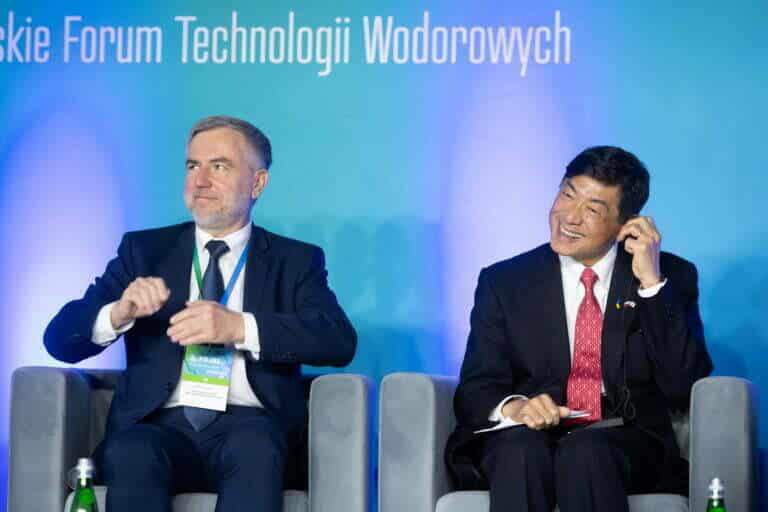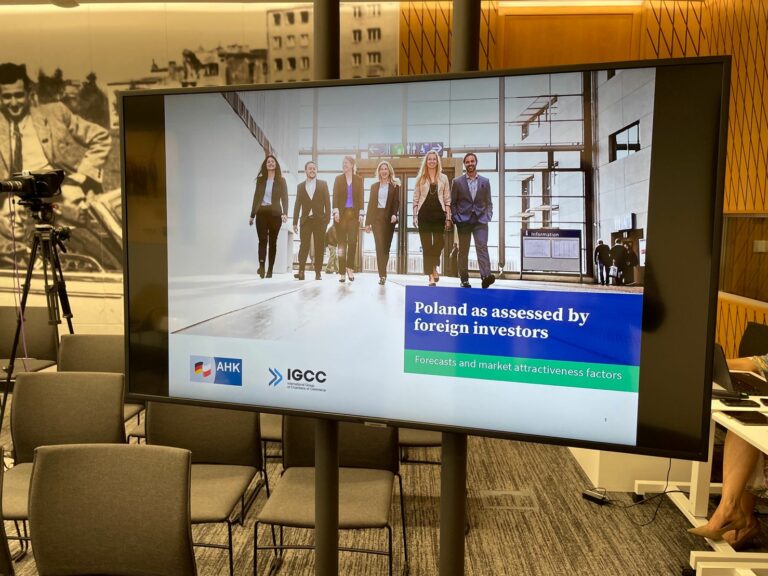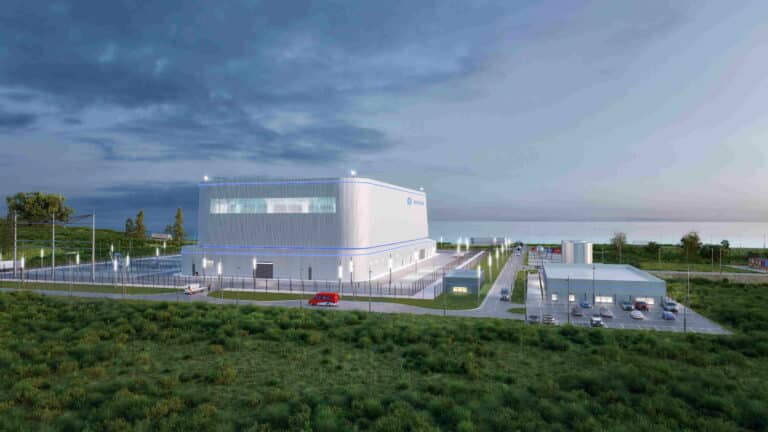Polish electromobility market attracts investors
Good investment prospects according to the report “Electromobility in Poland: investments, trends, employment 2021 report” created by the Polish Investment and Trade Agency, Bergman Engineering and the Polish Chamber of Electromobility Development.
Since 2016, the Polish Investment and Trade Agency has supported nearly 30 investment
projects in the electromobility sector, with a total value of over six billion EUR, which contributed to the creation of over 13,000 jobs for highly qualified workers and engineers.
The investment projects came mainly from Asia (South Korea – nine investments worth nearly 2/3 of all projects, China – six, Japan – four), but also from Europe: Sweden, Belgium, and Great Britain.
Investments in the electromobility sector are located mainly in the southern and western part of Poland, in the following voivodships: Lower Silesian (twelve projects), Śilesian (five investments in the following locations: Dąbrowa Górnicza, Jaworzno, Tucznawa, Zabrze, Dąbrowa Górnicza), Opolskie (three investments). Investors also choose regions such as Greater Poland (Śrem), as well as the northern part of the country (two investments in the Pomeranian Voivodeship) and in central Poland (Sokołów).
The leader among the cities is the Wrocław agglomeration, containing as many as eleven factories producing components for the electromobility sector in the following cities: Wrocław,
Biskupice Podgórne, Kobierzyce (LG), Jelcz-Laskowice (Toyota), Prusice, Wałbrzych.
The largest increase in investments in the electromobility sector could be observed in 2019, i.e. preceding the outbreak of the COVID-19 pandemic (six investments with a total value of over EUR 2 billion), which exceeded the value and amount of investments made in the two years of the pandemic: 2020 – 2021: six projects with a total value of EUR 2,3 billion.
Countries that invest in Poland
- South Korea (9 investments)
- China (6 investments)
- Japan (4 investments)
- Sweden
- Belgium
- Great Britain
There is an insufficient supply of batteries for electric cars in the EU, so the market is still open to further investments and Poland is the leader in battery production in Europe. It is estimated that our country manufactures approximately 30% of all battery production capacities in Europe.
The largest of the investments completed so far in Poland is the LG Energy Solution factory
in Kobierzyce near Wrocław – with the possibility to produce batteries with a total capacity of
up to 70 GWh per year. It is the largest battery factory in Europe and the largest production
plant of the LG concern in the world. Batteries from this LG factory are delivered to cars such as: Audi, Ford, Jaguar, Mercedes Benz, Smart, Porsche, Renault, Seat, Skoda, Volkswagen, Volvo.
The leaders of other segments include the Korean concern SK Innovation – a manufacturer of separators for lithium-ion (Li-Ion) batteries located in Dąbrowa Górnicza; Volkswagen Motor Polska, a manufacturer of an electric delivery vehicle VW Crafter; Polaris Polska – a manufacturer of electric off-road vehicles. On the other hand, among companies dealing with the development of technology, there can be mentioned the Aptiv company, which is a market leader in the creation of advanced ADAS driver assistance systems and is located in Kraków.
Among the companies involved in the production of e-buses, there can be distinguished
Solaris, a company with Polish roots, which currently belongs to the Spanish CAF capital
group. Solaris is a leader in the production of electric buses, and for many years has been
producing electric buses in Bolechowo near Poznań. Other producers of the e-fleet are Volvo
Polska, which produces electric buses in Wrocław, and MAN, which started the production of
e-buses in Starachowice.
So far, several foreign car manufacturers have announced plans to produce electric vehicles in Poland, and ElectroMobility Poland, a company belonging to a consortium of state-owned energy companies, has unveiled a prototype of its first Polish EV, Izera, in July 2020. The vehicles are to be produced at the factory in Jaworzno in Silesia, and production is to start
in a few years.
One of the visible trends is the change from the current production of conventional vehicles to hybrid or fully electric vehicles. Stellantis is currently designing a fully electric Jeep crossover, which will be produced at the Tychy factory, along with similar cars from the Alfa Romeo and Fiat brands. The investment in the production plant in Tychy will amount to over PLN 755 million, and the currently implemented production will be adjusted for this purpose. Similar plans concern the Opel plant in Gliwice, where the Opel Astra model is produced – the best–selling model in the company.
Meanwhile, Daimler plans to invest over EUR 200 million in the production of electric batteries in Jawor in south-west Poland. Initially, the investment involves the production of
batteries for gasoline-electric hybrid cars. This is not an isolated trend. Since 2019, Toyota has invested almost EUR 100 million in Poland to implement the production of combustion
engines for hybrid vehicles. Volkswagen, which produces the MAN eTGE electric truck in Września, started production of the new e-Crafter delivery van there in July 2020. LG Energy
Solution (South Korea) plans to process lithium hydroxide mined in Upper Rhineland, in Graben, Germany, for its electric car battery factory in Poland.
Similarly to the investments in the electric vehicles and e-car component manufacturing sector, investments in car charging infrastructure open big investment opportunities. Projects of this type may benefit from the following facilitations: no need to obtain a building permit,
and distribution system operators who would like to provide their charging station are exempt
from the obligation to obtain a license to trade in electricity. Financing investments in the
charging infrastructure for electric cars is possible through the Low-Emission Transport Fund
managed by the National Fund for Environmental Protection and Water Management
(NFOŚiGW).
Pursuant to the Act on electromobility and alternative fuels (Article 60) in Polish cities
with more than 100,000 inhabitants, there must be created an infrastructure for charging
electric cars. The number of charging stations depends on the population and the density of
the car fleet per 1,000 inhabitants and ranges between 60 (in 12 smaller cities with more than 100,000 inhabitants) and 1,000 charging points (in Warsaw).
An increasing number of companies is considering locating their production in Poland,
which is caused by the attractive investment position of our country. Such a choice is supported by the developed road and energy infrastructure, highly qualified workforce, the growing number of companies from the electromobility sector, but also the presence of many academic and vocational training resources. Among the companies representing the electromobility sector, there are enterprises constituting various links in the value chain. After the investment made by LG, more and more companies from Korea, China and Japan are considering locating their investment projects in Poland.

